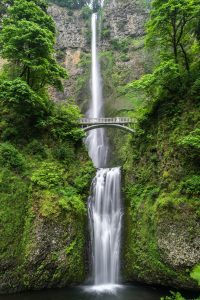Therapists acquire knowledge to help the suffering. A cognitive-behavioral theorist focuses on reframing negative thoughts, and a Freudian helps comprehend the unconscious mind. Often, a client’s treatment plan reflects a particular approach. The session is conducted in a minimalist office, sitting on a subtle couch, with psychology books stacked in the distance. After fifty minutes and before leaving, we vocalize our responsibility to foster change for the week.
However, applying what we gained during our session to the outside world is complex. Our perception changes, confidence decreases, and the moment passes. And the next session becomes redundant. On the contrary, muscle memory is a success, and moving past the mental anguish becomes easier each time. Frequently, we need to remember in therapy that different learning styles dictate how the client meets their goals.

Photo by Blake Verdoorn on Unsplash
Across the lifespan, individuals share commonalities outside of therapy. Children play video games, while adults engage in physical activity. We learn how to drive a car to get us to our destinations, or individuals cook for themselves or their families. Experiential approaches, such as ‘learning by doing,’ can empower us to apply what we learn in real-life situations. Theoretically and empirically, this concept builds on empowerment and allows individuals to regain control of their lives.
We tend to forget the impact that these daily tasks have on us. But how can we increase the direct impact experiential learning has on symptoms such as stress or emotional dysregulation? Long-distance walks in nature are proven to manage emotional struggles. A recent study indicated a decrease in stress after a nine-day hike in the Alps. The bonuses include decreased heart disease and blood pressure. While experiential learning is the focus of improvement, the underlying theme is natural environments.
Humans are not built for a digital world. The biophilia hypothesis theory suggests that individuals are genetically predisposed to connect to nature and become healthier. Nature decreases anxiety and depression. The unconventionality of these theories frightens most providers and stalls the innovative approaches when, historically, individuals have sought to return to the natural world. But the positive impact of nature-based therapies on mental health is undeniable, providing reassurance and confidence in their effectiveness. In Ancient Greece, Hippocrates stated, “Nature itself is the best physician”. He believed that organisms can heal physical and mental health with the force of nature. After exposure, many individuals have felt positive. Another Greek physician, Galen, made advancements in Hippocrates’ theories, moving towards modern medicine. The profound influence on Galen has left us inundated with traditional methods, pressuring us to survive on an imbalance.
But how do we find a compromise to remain stabilized? In the early 1970s, “think outside the box” was coined after American psychologist J.P. Guilford believed that human intelligence had multiple layers. Enhancing intelligence derives from the learning styles in which we find strength. Utilizing our power within allows us to be open to an integrative and creative approach toward psychological healing.
A recent study found that sexual assault survivors, specifically women who engage in nature or adventure therapies, are likely to feel empowered throughout the healing process. Many activities encourage others to instill resilience in challenging conditions, such as hiking, that a mental health professional facilitates. The notion equates to obstacles before the traumatic event with opportunities to learn resilience with traditional theories such as Cognitive-Behavioral Therapy and Dialectal-Behavioral Therapy. A conjunctional but somatic approach allows the individual to develop a physical, cognitive, and psychological connection that affirms a complete treatment plan.
When I was an adolescent, I had multiple traumas occur. Galen’s philosophy was often pushed with the hope that it signified improvement. The need to learn how to move forward with movement never fit a psychiatrist’s ideology and amplified the challenges I faced. The climatic understanding of my mental health included an experiential approach that was initially overlooked. While it is not a solution for all, the biases and discounts of its effectiveness often prevail.
Research demonstrates that experiential learning, nature, and traditional interventions successfully achieve physical and mental well-being and that providers incorporate holistic methods. Popular in the West, programs such as Wilderness Therapy and Adventure Therapy are emerging and spreading across the United States. Awareness is increasing, and the view on treating mental health is transforming. But will the stigmatism of these approaches stop the total transformation?
The evolution of mental health care continues to expand with affordable and efficient options. As history repeats, the 1960s movement mirrors our current climate with revamped interventions and activism to improve quality of life. The growth of experiential and nature programs in mental health continues to build upon empirical research, affirming the validity of the positive effects it claims and obtaining its right to belong. As voices continue to be heard, will it be loud enough to sustain the growth that continues to be proven?
Photo by Boxed Water Is Better on Unsplash
Guest Post Disclaimer: Any and all information shared in this guest blog post is intended for educational and informational purposes only. Nothing in this blog post, nor any content on CPTSDfoundation.org, is a supplement for or supersedes the relationship and direction of your medical or mental health providers. Thoughts, ideas, or opinions expressed by the writer of this guest blog post do not necessarily reflect those of CPTSD Foundation. For more information, see our Privacy Policy and Full Disclaimer.

Deborah E. Padilla, LMSW, PhD(c) is a licensed social worker specializing in nature and adventure therapy, focusing on trauma. She is a Ph.D. Candidate in Social Work, the founder of PATHS WITH HEALING Inc., the podcast HIKING IS MY THERAPY, and a licensed hiking guide. She has extensive experience working with individuals, children, families, and groups in various settings.





As someone that worked in Horticulture and bird conservation, the outdoors was the only thing that would console me. I no longer feel any connection with most humans and the only time in my life i ever felt like I had any value, connection was when I was with my plants and birds